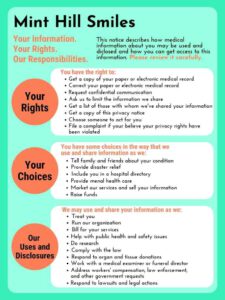Services Confidential
As a business owner, you probably deal with confidential information on a regular basis. This could include customer or client information, trade secrets, financial or operational data, and more. Depending on the industry or profession, some of this information is more sensitive than others, and it’s important to keep it private. Whether you need to protect the details of these confidential materials with an NDA or you just want to set a general intellectual property strategy, understanding how to best handle this type of information can prevent you from getting in trouble down the line.
Confidentiality is generally defined by law or professional standards. For example, health care professionals in the United States are required to keep a patient’s diagnosis and treatment private unless the patient gives them permission to share this information with others. This standard is outlined in HIPAA laws and in various state health laws that are more rigorous than HIPAA. In addition to this, many professional associations and regulatory bodies also have codes of conduct and other guidelines that outline these rules.
Some of these rules require specific exceptions, such as if a psychologist is concerned about a child’s safety or the potential for abuse of an elderly person, or if there is a risk of serious harm to other individuals. These types of exceptions are generally outlined in initial meetings between clients and their therapists.
Other times, a therapist may need to disclose information in order to carry out their job duties. For example, a therapist might interview a spouse to get more details about a child’s behavior, or they might discuss a student’s progress in school with a teacher. In most cases, a therapist can’t reveal this information without the client’s permission, but they will discuss these circumstances with their clients in the first meeting.

Are Your Services Confidential?
Keeping confidential information private is not always easy, particularly in busy settings where the same people come and go. It can be especially challenging in wards and practice environments, where junior staff members can be privy to confidential information on a regular basis.
In these situations, it’s important to clearly communicate the rules of confidentiality and ask that all parties respect them. Additionally, it’s helpful to create resources like explainers and playbooks that lay out the rules in a simple way that everyone can understand.
As a service user, you have a right to expect your health and care providers to protect your confidentiality at all times. This is a part of your contract with the National Health Service, outlined in NHS constitutions and key rules, as well as in professional standards set by regulatory bodies. You can read more about these standards on the NHS website. You can also learn about what to do if you think your rights are being violated. You can also contact your local NHS trust.
In conclusion, the ability to communicate directly with a writer depends on various factors, including the nature of the writing project, the platform or service used, and the preferences of both parties involved. While direct communication offers advantages in terms of clarity, collaboration, and personalized interaction, it may not always be feasible or practical in every writing homework market.com context.